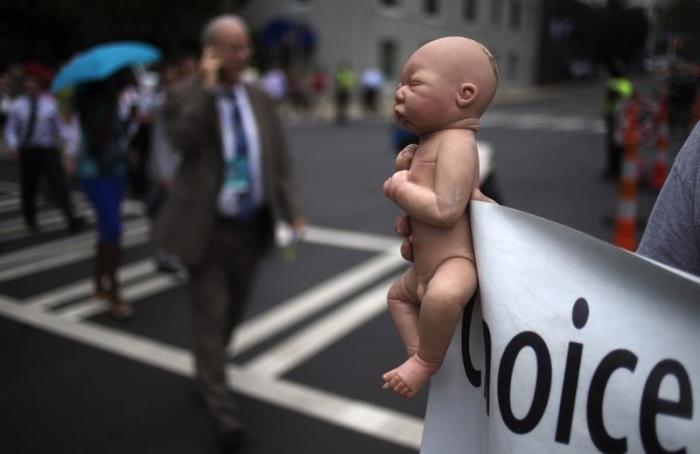Ark. laws banning sex-selective, dismemberment abortions can go into effect: appeals court

A three-judge panel of the U.S. Court of Appeals for the Eighth Circuit issued a ruling allowing Arkansas to implement a set of laws banning dismemberment and sex-selective abortions.
In 2017, Arkansas passed four pro-life laws that, among other things, ban second-trimester and third-trimester dismemberment abortions and sex-selective abortions carried out because the parents don't want the baby because of its sex, most often because it's a girl.
In a Per Curiam decision released Friday, the appeals panel vacated a preliminary injunction against the laws by a district court, remanding the case for reconsideration by the lower court and allowing the laws to take effect on Aug. 28.
The panel cited the opinion of U.S. Supreme Court Chief Justice John Roberts, as given in last month's decision in June Medical Services L. L. C. v. Russo.
In June Medical Services, Roberts sided with the high court’s four liberal justices, striking down a Louisiana state law that required abortion providers to have hospital admitting privileges.
Although Roberts had sided with the majority against the law, Roberts also wrote a concurring opinion taking issue with the courts determining whether courts could rule on certain abortion regulations.
“… courts applying a balancing test would be asked in essence to weigh the State’s interests in ‘protecting the potentiality of human life’ and the health of the woman, on the one hand, against the woman’s liberty interest in defining her ‘own concept of existence, of meaning, of the universe, and of the mystery of human life’ on the other,” wrote Roberts in his concurring opinion.
“There is no plausible sense in which anyone, let alone this Court, could objectively assign weight to such imponderable values and no meaningful way to compare them if there were.”
The Eighth Circuit panel stressed the point Roberts made about how “a weighing of costs and benefits of an abortion regulation” was not “a job for the courts.”
“Chief Justice Robert’s vote was necessary in holding unconstitutional Louisiana’s admitting-privileges law, so his separate opinion is controlling,” reasoned the Per Curiam decision.
“Chief Justice Roberts … emphasized the ‘wide discretion’ that courts must afford to legislatures in areas of medical uncertainty.”
Arkansas Attorney General Leslie Rutledge celebrated the decision, saying in a statement that “Arkansas has taken a strong stance to protect the unborn from inhumane treatment.”
“As Arkansas’s chief legal officer, I have always advocated for the lives of unborn children and will continue to defend our state’s legal right to protect the unborn,” said Rutledge, according to LifeNews.com.
The American Civil Liberties Union of Arkansas, which brought the litigation against the laws when they were first passed, denounced the panel's ruling, calling the laws “onerous.”
“This ruling is a reminder that the fight against these extreme abortion restrictions is far from won,” stated Holly Dickson, ACLU of Arkansas legal director.
“We are evaluating our next steps and will continue to fight to ensure these harmful and unconstitutional laws do not take effect."





























